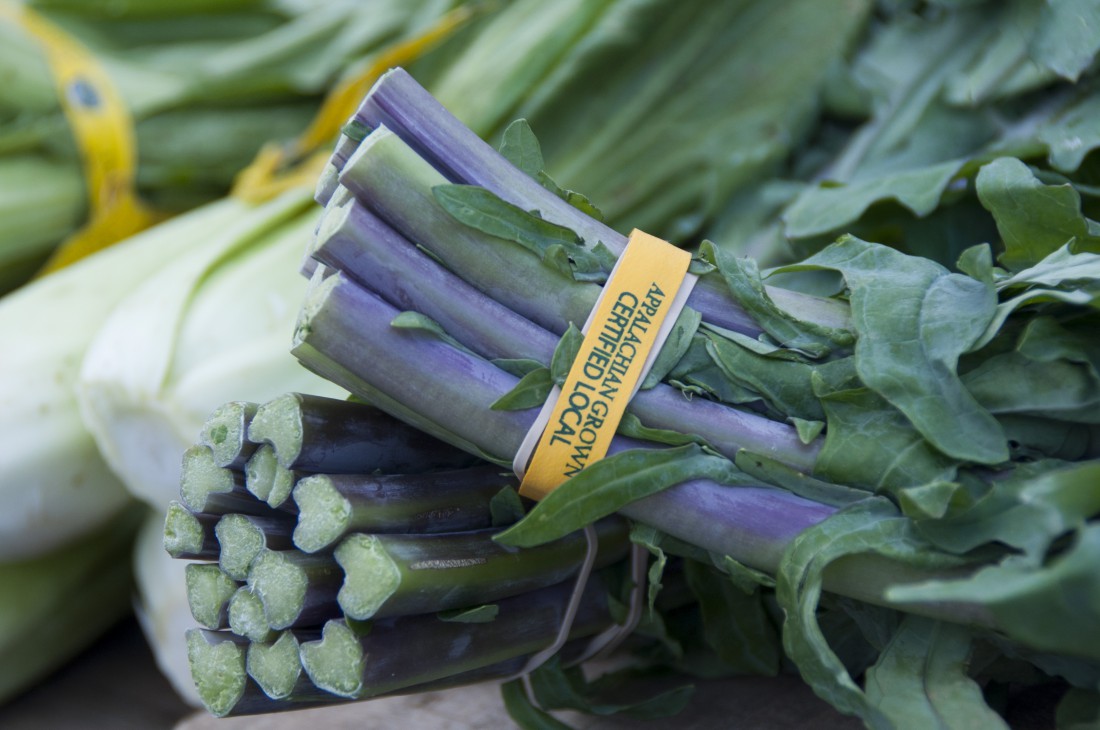Appalachian Sustainable Agriculture Project’s mission is to help local farms thrive, link farmers to markets and supporters and build healthy communities through connections to local food. Our vision is of strong farms, thriving local food economies and healthy communities where farming is valued as central to our heritage and our future. As an organization, we believe that it is only through connections to food and agriculture that we can build an equitable, health-promoting and environmentally sustainable food system.
In 2000, ASAP launched a local food campaign. Nearly 15 years later, what began as a strategy to help Appalachian farmers find new markets has now evolved to be part of a national (and even international) movement to fundamentally change the food system.
ASAP’s work begins with an understanding that meaningful connections to food are the foundation for transforming our food system. When food production happens where we live, it creates transparency and connection. Close to the source of production, we gain firsthand knowledge of how food is being produced — by whom and using what means. We meet the people growing our food. We learn about the connections be- tween agriculture, land use and labor. We gain power as citizens and consumers to directly influence the qualities of the food that we eat and the way our food system works.
In this way, ASAP’s work focuses on building community ties centered around local farms and local food. We also work to provide the public with direct food and farm experiences in farmers markets, farm tours, community supported agriculture, cooking demonstrations and tastings and much more. These kinds of experiences (re)introduce the processes of food production, familiarize people with agriculture and build community ties.
We work to accomplish our mission by providing farmers with marketing support and training and connecting them to the region’s food businesses. We produce the Local Food Guide, a directory of the area’s family farms, farmers markets and businesses that use local agricultural products. Through our “Appalachian Grown” branding and certification program, we identify local food in the marketplace and provide shoppers with a tool to truly find local food grown in the Southern Appalachian region.
Through our Growing Minds Farm to School Program, we take our work to area schools, preschools and Head Start centers to ensure children know where their food comes from and develop lifelong healthy eating habits. Our Local Food Research Center conducts scholarly research on the region’s developing food system and looks at the social, economic and environmental impacts of localizing food systems. We organize and run Asheville City Market and coordinate the Mountain Tailgate Market Association, a network of tailgate markets in counties throughout Western North Carolina.
The campaign’s influence has helped local food sales in Western North Carolina triple in the last three years alone. Each year our work helps keep thousands of acres of farmland in production, connects local residents to hundreds of grocers and restaurants sourcing food from local farms and provides tens of thousands of students in the region with meaningful local food and farm experiences. We lead the state in SNAP sales at farmers markets through Asheville City Market, and every day we work to transform our food system from one that is failing us and our planet into one that will sustainably feed us all, both in body and in spirit.
For more information, visit asapconnections.org.




Before you comment
The comments section is here to provide a platform for civil dialogue on the issues we face together as a local community. Xpress is committed to offering this platform for all voices, but when the tone of the discussion gets nasty or strays off topic, we believe many people choose not to participate. Xpress editors are determined to moderate comments to ensure a constructive interchange is maintained. All comments judged not to be in keeping with the spirit of civil discourse will be removed and repeat violators will be banned. See here for our terms of service. Thank you for being part of this effort to promote respectful discussion.